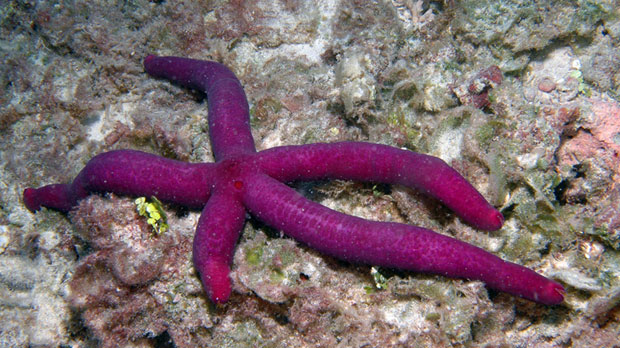Earth could be home to 8.7m species
A new approach to estimating the number of species on Earth could help speed up the collection of vital information about ecosystems, a leading scientist tells Channel 4 News.

Previous “guesstimates” have put the figure at anything from three to 100m, but experts say the new approach will allow scientists to come to a more accurate figure in the future.
The research indicates there are 6.5m species living on the land and 2.2m in the oceans.
But only a fraction of these have been discovered, described and catalogued with 86 per cent of all terrestrial species and 91 per cent of marine species still a mystery to scientists.
Experts from the Census of Marine Life devised the new way of estimating species numbers. Researchers reported their findings in the online journal Public Library of Science Biology.
The scientists arrived at the figure using the taxonomic classification system which is used to name and describe species by arranging them into a hierarchy ranked upwards from species to domain.
Numerical pattern
Analysing data on ocean species they noticed a numerical pattern linking the number of groups at the higher levels of the pyramid to the number of species at the bottom.
Co-author Dr Sina Adl, from Dalhousie University, said: “We discovered that, using numbers from the higher taxonomic groups, we can predict the number of species.
“The approach accurately predicted the number of species in several well-studied groups such as mammals, fishes and birds, providing confidence in the method.”
Until now, scientists have relied on surveying small patches of habitat and extrapolating the data on the species present upwards to estimate a figure for the whole planet.
Lead scientist Dr Camilo Mora said the question of how many species exist has intrigued scientists for centuries.
He said the answer is “particularly important” because a host of human activities and influences are accelerating the rate of extinctions.
Dr Mora, from the University of Hawaii, US, and Dalhousie University in Halifax, Canada, added: “Many species may vanish before we even know of their existence, of their unique niche and function in ecosystems, and of their potential contribution to improve human well-being.”
Lord May of Oxford, former president of the Royal Society, told Channel 4 News that the none of the methods of estimating the number of species are exact.
But he said that the new method puts the number at the lower end of the range of estimates which he believes is more credible.
He added that combined with the system of barcoding the DNA of species, this could significantly speed up the collection of more accurate information.
“From a scientific point of view, we need a better understanding of ecosystems,” said Lord May. “It is annoying how little we know about this planet today.”




